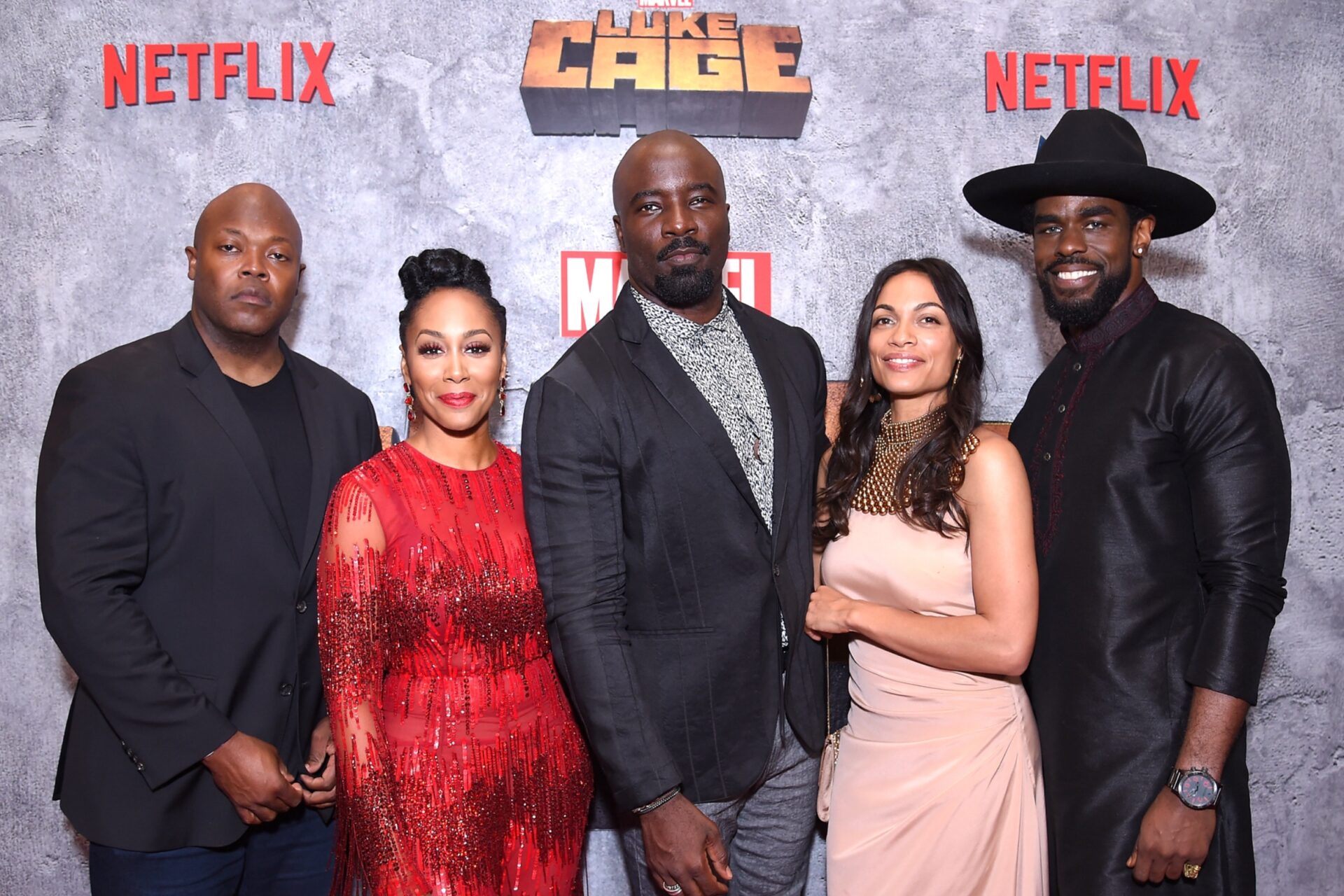
February 2, 2024
‘Luke Cage’ Had Few White Villains Because Creator Was ‘Trying To Keep Black People Gainfully Employed’
The creator of Marvel's "Luke Cage" on Netflix has heard viewers' concerns and wants everyone to know there is a reason most of the show's villains were Black and not White.
The creator of Marvel’s Luke Cage on Netflix has heard viewers’ concerns and wants everyone to know there is a reason most of the show’s villains were Black and not white.
The series follows the superhero origins of Luke Cage (portrayed by actor Mike Colter), an ex-con man who gains super strength and unbreakable skin following a botched science experiment. After taking claim of his superpowers, Cage works to protect the streets of Harlem, NY, all while grappling with his suppressed history that surfaces through memories he tried to bury.
With it serving as as the third installment in the Netflix-original Defenders series, the Marvel show has acquired quite the fanclub. One viewer of the series raised a debate on Twitter last week after noting the lack of white villains compared to Black villains.
“Obviously Luke Cage was created in the 1970s, but did y’all peek how the Marvel series depicted him having to fight MORE Black people to SAVE Harlem than white villains?” they asked. “I did.”
Other fans offered their explanations, which included basing the villains on the fact the comic book series was based in Harlem, a historically Black neighborhood.
“Harlem population is mostly black, therefore its a logical conclusion that bad guys there would be mostly black,” one person wrote. “That would be like complaining a superhero in montana is fighting mostly white people lmfao.”
“Who else lived in Harlem back then? Lmao. Clearly you never been there,” added someone else.
Cheo Hodari Coker, the show’s creator, caught wind of the Twitter debate and explained why there were very few white villains, and it wasn’t solely to match the racial dynamic of Harlem.
“I was trying to keep Black people gainfully employed. LOL. Just saying…,” he wrote.
He received a swarm of support for his response and even replied to one fan who offered their take on the debate. Coker explained how unintentional it was that the series took so long before a white character even spoke.
“If [Cage] was only fighting white people, they would complain that there are too many white folks in Harlem,” the X user wrote.
“A white person didn’t have a speaking part for 13 minutes and major dialogue until minute 29,” Coker replied. “People actually complained. Scarfe’s scene in the club got cut, so it wasn’t even intentional.”
One excited fan asked Coker “What’s next,” which he teased “Working on a few things now.”
RELATED CONTENT: Issa Rae Considers Going Independent With Cancellation Of ‘So Many Black Shows‘